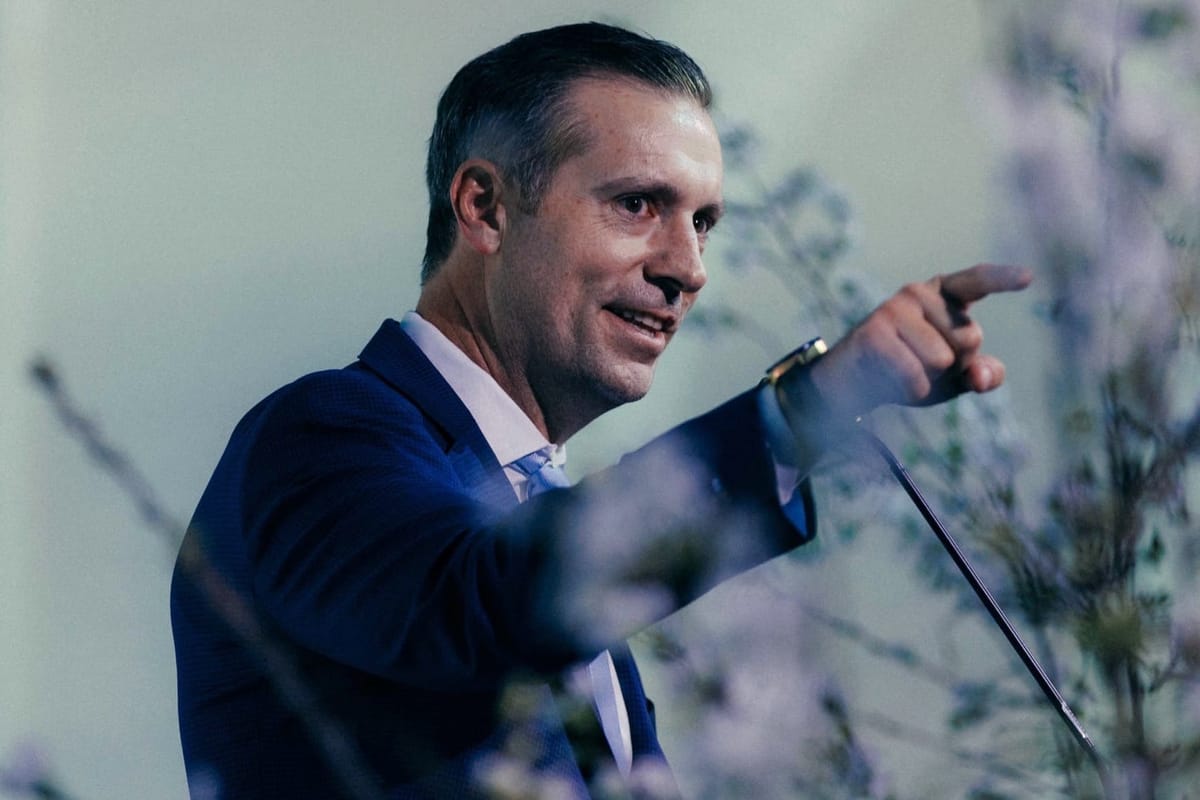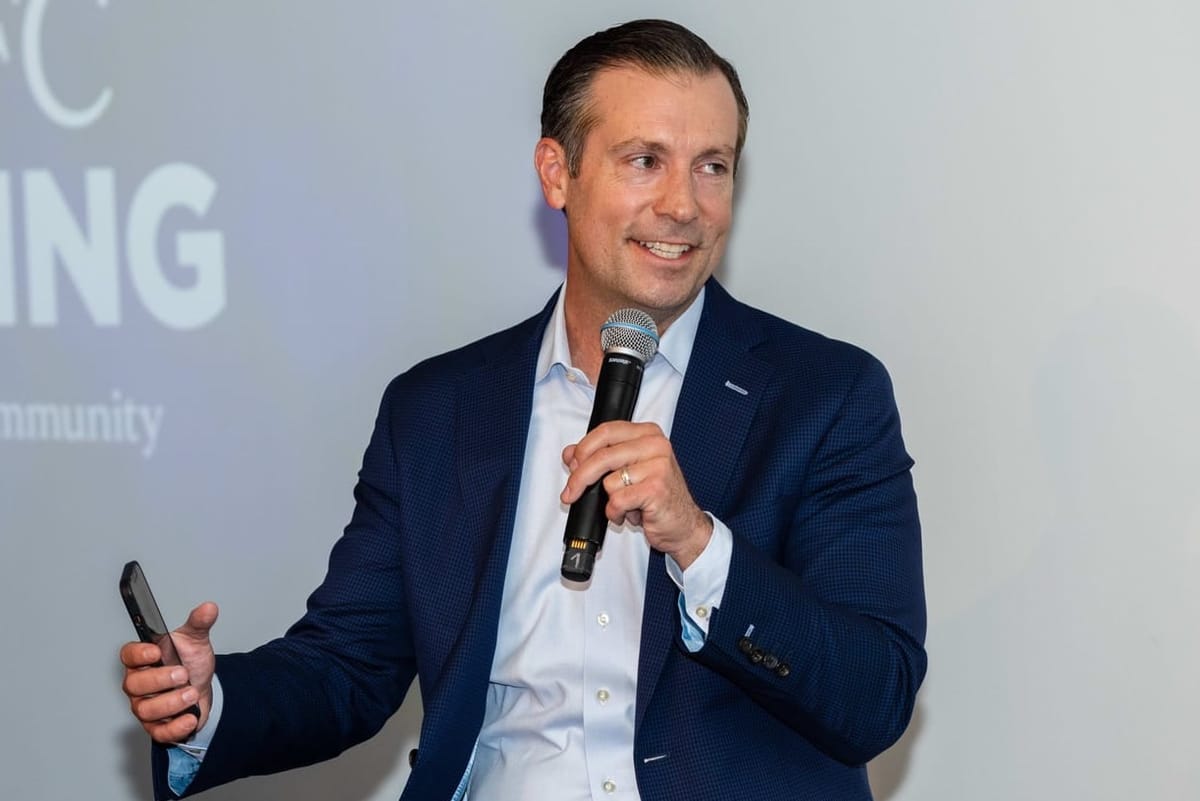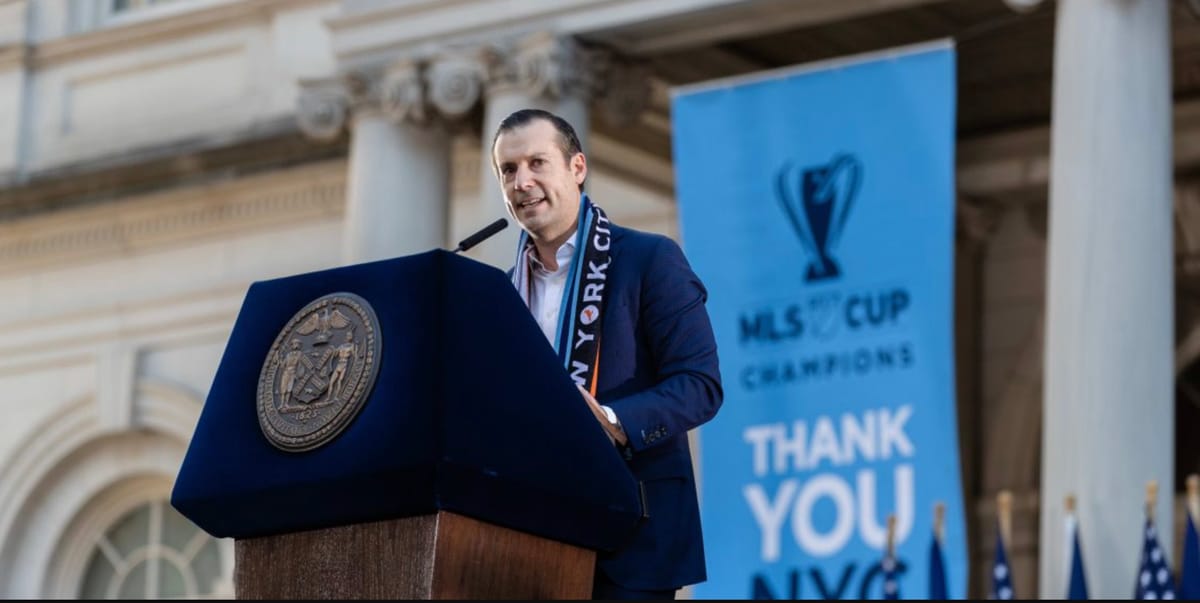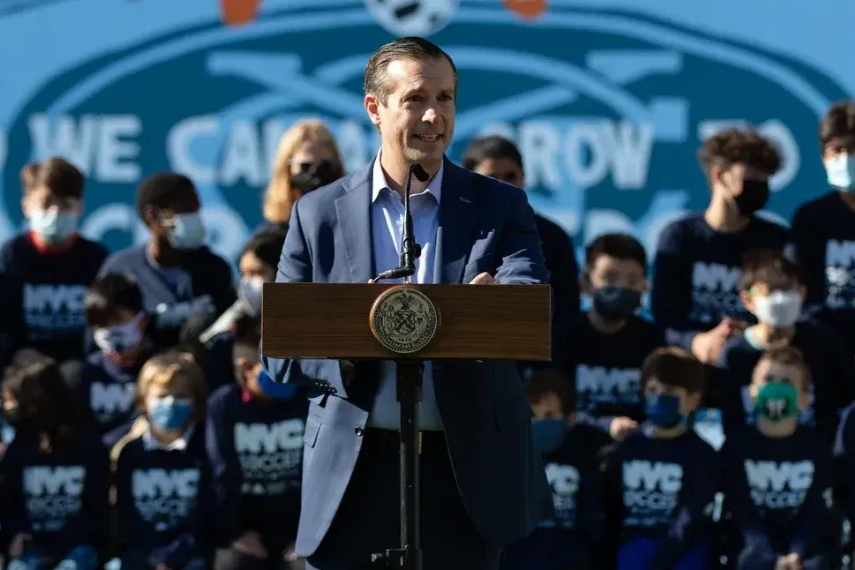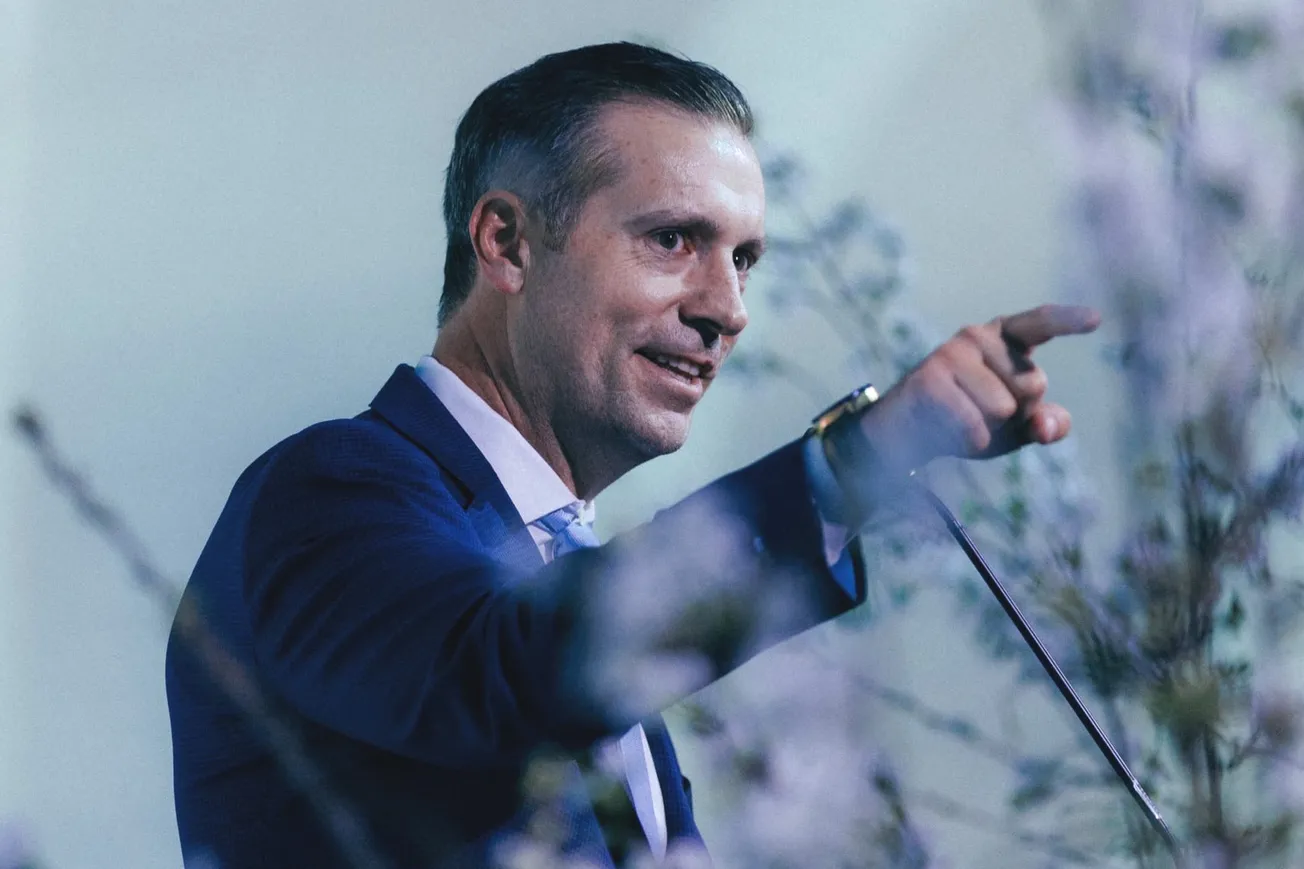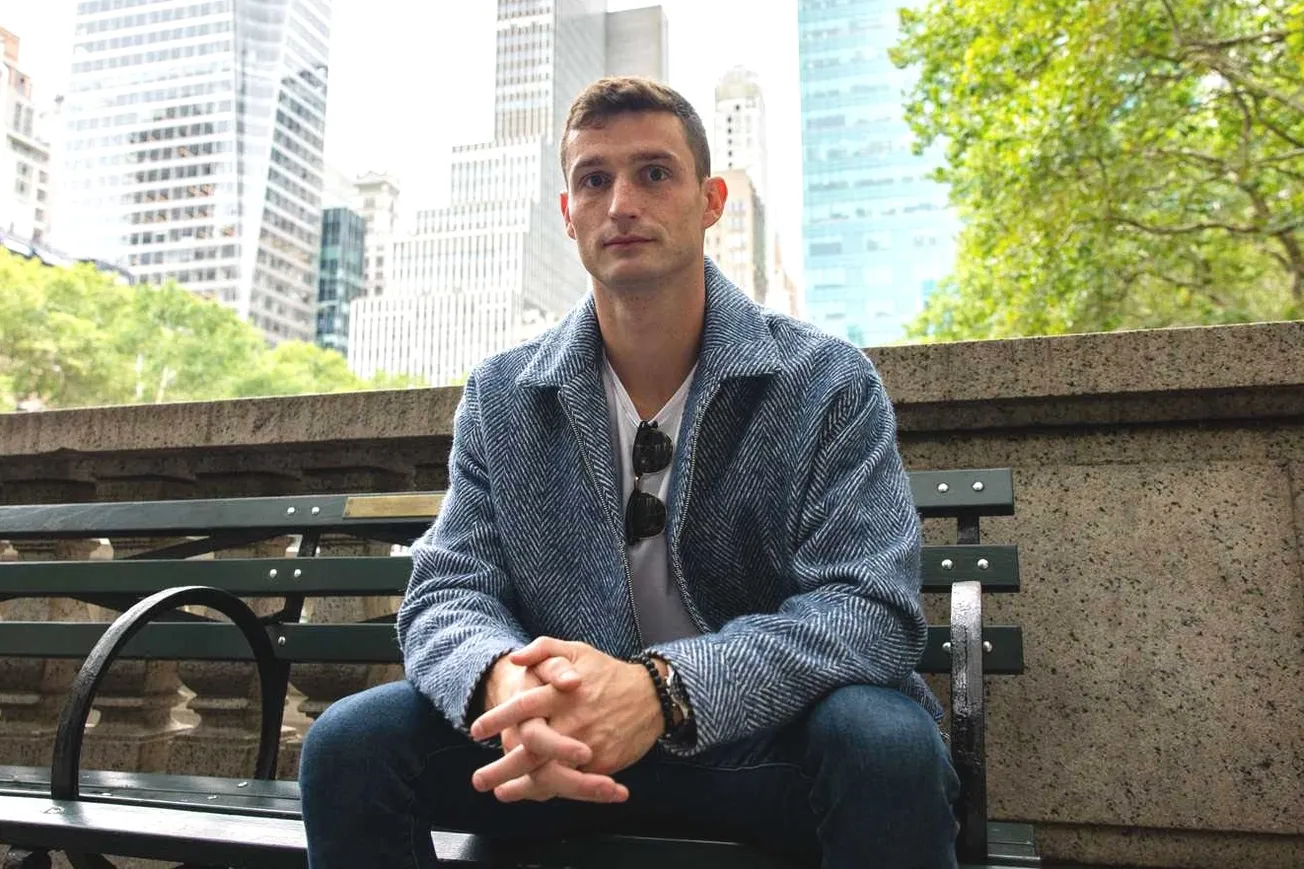This is Part 2 of a two-part conversation with New York City FC President and CEO Brad Sims. Last month, the NYCFC executive sat down for a roundtable discussion with members of the media at the club's headquarters in Midtown Manhattan.
Yesterday we published Part 1, "Brad Sims: 6 Million fans can't be wrong." In it, Sims talked about his role at the club, the rebrand, new media, and how they're going to pay for the new stadium. In Part 2, Sims discusses roster building, the argument against big singings, the argument for signing Messi, where MLS could expand next, should the league will stagger game start times, and other subjects.
Note: The statements below were edited for length and clarity.
How to build a consistent winner
There are two ways to build to really be attractive to fans.
One is notable players, but historically those teams have not been successful on the pitch. Look at Toronto last year. They spent the most money in the league on two guys. And they finished dead last in the entire league. Chicago spent a lot of money on some players. They did not sniff the playoffs in the last couple of years.
I'm just saying historically, that's what happened. You could do that, and maybe you get fans, but then when that player leaves, are the fans really going to be fans of your team long-term? I don't know. Messi in Miami will be, I think, an interesting case study.
It depends on what they do, you know, over the next three or five years, and who they sign, and what direction they going. I think it'd be an interesting case study. You know, LA Galaxy have kind of like their brand promise to their fans. It's like, “Hey Beckham.” And then it's like, okay, “Who's the next Beckham?” And then they had Ibra, and then like, “Who's the next Ibra?” That's really kind of what they've kind of done, but I think the last MLS Championship was before we were a club. So, I don't know if that leads to the championship-winning.
I'd say one way is to go get players, and maybe that's more of a short-term, fix. And maybe a false fix in terms of getting fans. Because are they really there that are going to be with you in the long term? Or is it just that they’re there for them?
Or you could build a consistent winner. Which is what we've been trying to do. Obviously, with last year missing [the playoffs] by one point, which we're displeased about. But generally, we have a situation where we can say to potential future fans that this is a club that is a proven winner.
We've hoisted trophies, but we're competitive every year. We're in the mix when it's all said and done. At the end of every season, whenever there's a competition, whenever there's a trophy, we're in the mix to win it. And we play exciting football. Hopefully, all these things go together, and that's attractive for people who want to be a part of what we do.
When we have our preview presentation center for the new stadium, we'll be talking about winning. We'll be talking about a winning tradition. We'll be talking about a club that historically is a consistent winner and consistently is competing at the top of the table.
And that's what we expect to be for the foreseeable future.
Big signings, changes to MLS roster rules
Obviously, the Messi situation has been such a massive success for Miami, and for the league, and for any team that hosts Miami. The answer should be, “Everyone should just get a Messi.” That would be great. If we had 29 Messis, then we'd be in business.
Unfortunately, there's only one GOAT. No one else would have that level of impact. Other players have a significant impact, for sure. The trick is how do you know when you're team-building in the current rules and current environment with salary caps, and in a league that is set up specifically for as great a level of parity as possible.
That could change at some point, the way the league is structured and the players are structured. And I'll give [MLS] the utmost credit. I think that they feel that they're open, that anything is on the table.
The current structure that we live in today, is that going to be the structure in 2029 or 2030? I think probably not. Because I think that there is a significant desire from a league standpoint, from the owners of the teams, to be able to evolve, to innovate, and to be more forward-thinking, and in a way to more greatly be able to capitalize on what's happening now and what's going happen, especially in 2026. So, I think that all could change.
Having said that, historically, teams with big-name players haven't actually performed very well on the pitch from a won-loss record or from a championship-level record. In fact, there was a point, I think it was last year when they released all the salaries. The eight highest payrolls in the league, seven of the eight were the last seven teams in the entire league. And the shield ratings, literally the last were seven positions.
Our first eight seasons in the league: Year one, we had the most big-name players, the highest payroll, and the least amount of points that we ever had in the season. Year two, we had the second-most big-name players, the second-highest payroll we've ever had, and the second-worst points we've ever had.
Year three, we had the third-most, the third-least. It was actually an inverse correlation between payroll and investment in players and performance on the pitch. It's the exact opposite. Whereas in the year we won a cup in ‘21, and obviously we almost made it again in ‘22, we had a team that we built organically. That was a team that had talent, that had depth. You know, young talent, peak-age veterans had culture, had character, had heart.
And we beat the teams that did have the big names. So ultimately we try to think about, “How do we build Teams like that?” I think that probably the work that's been done over the last couple of transfer windows has been more about “How do we build a team like we had from ‘19 to ‘22?”
On Messi missing away games
This is not something new, a superstar in a sport playing a game on the road. I had worked in the NBA for 1- plus years and had our share of superstars, and obviously worked on a team with arguably the biggest superstar in the league in LeBron James.1 We had situations where we played 41 away games, and LeBron didn't play 41 away games.
If LeBron James didn't play, or Kobe Bryant didn't play, or Michael Jordan didn't play, or, you know, Tom Brady didn't play – which is rare I guess – but you know, that's out of the control of pretty much anything, especially the host team for an away game.
Miami has other notable guys. If the team didn't have Messi and never did, but still had Busquets and Suarez and Jordi Alba and others, it would probably still sell out a lot of games on the road. Because that would still be the biggest collection of stars on any team.
The games that Messi hasn't played away, last year and this year, is there disappointment from fans in those markets? I'm sure there is. Did they end up seeing high-quality players and other star players, and good matchups?
I remember last year when the big one was in Chicago, Messi didn't play. And Chicago won 4-2.2 It was an amazing game. People were going crazy. Atmosphere was amazing. I think that Chicago had offered some goods and some other things.
From our standpoint, we're anticipating that Miami will be here in full health and all their players will be playing. It's one thing when you have to travel from Miami to Vancouver, versus Miami to New York. It's just a nice, easy, little flight.
We haven't really contemplated what that would look like other than that. You know, the game is New York City FC against Inter Miami, and whoever shows up for Inter Miami, I hope we beat their ass that night.
Where MLS could expand next
Well, the 30th team coming in ‘25.3 It'll be interesting. I think there are a lot of discussions on what does the league looks like going forward. I think we have to figure out the investment in players, and what's going to happen with the salary cap and DPs. What does that look like on a going-forward basis first? I think that they need to figure out that and what they want the league to look like in the kind of near-slash-intermediate term.
Once that's figured out, does it make sense to expand beyond 30 teams? I mentioned before that I think there are plenty of viable markets. And MLS is a product for the so-called one-horse towns or no-horse towns.
Like in Austin, right? By the way, I grew up in Sacramento, California. In 1985, the Kings moved from Kansas City to Sacramento. It's been one of the big success stories in the four major sports leagues. The support that Sacramento has been able to give to the Kings who, I mean, were God awful for, geez, we're going on 40 years – we had probably like five good seasons out of 40 years – and they still sell out every night. It's been like, I mean, it's just an incredible success story there.
By the way, I think Sacramento would be a great market for MLS. I think of the Austins of the world when you’re the first mover in the market. Louisville to me would be a fantastic market. There’s noise out there around Indianapolis, which I think would be a fantastic market. I spent time in Cleveland, and I think Cleveland would be a great market. People aren’t driving from Cleveland to Columbus for games, that’s just not happening.
Detroit, that’s another big one. There’s a bunch. But I think finding these one-horse or no-horse towns, without going through a whole map, a ton of them could support it. It’s just a question of what makes sense for the league going forward.
Whereas NFL, NBA, MLB, NHL, I really don’t see them going beyond 32. Some of those are at 30 now, which I do see going to 32. But I don’t know if there are markets because you’re talking about the number of games, 41 games for NBA, 81 for baseball. Soccer is really palatable for those small/midsize markets that could just be powerhouses and have incredible atmospheres, like what you see in Austin.
Should the league stagger game times?
Last year, it was pretty much told to the teams: You're playing Saturday at 7:30. As you can see, this year we played a couple of Friday games, we played a Sunday game. There was zero pushback. We talked to Apple, and they said, “Yeah, great idea.” It's kind of, test-and-learn.
It's almost kind of like Thursday Night Football, right? It's the one game to stand out.
We've been the only Friday night game for the couple of weeks that we've played. And so I think that, Um, you know, they're in test-and-learn mode. I will say, I give it to the league and to Apple. They're willing to try everything. Like, everything's on the table.
You know, they're constantly trying to learn what's working, what's not working. But, I think that when you have ten games on simultaneously, that's not great.
You know my trivia question from last year? The most-watched team on Apple TV last year was Real Salt Lake.
It was because they were the only Mountain Zone game. And so when all the Eastern Time Zone games were finished, or Central Time Zone games were finished, it was the only game on Season Pass. So people were already watching soccer, they were like, “What game's still on?” It was always the Real Salt Lake game. So they just switched it over and they watched the second half of the Real Salt Lake game.
If games are on, and someone's already on the platform, how do you keep them on the platform? Also, how do you become more of a fan of the league as a whole? I think for sure you'll see more changes over the next couple of years and more of this kind of test-and-learn mentality.
On playing in Austin (finally)4
I love going to other markets.
Obviously, it's great that the league continues to expand, and there are so many markets that are interested in and can support an MLS team. And I think, by the way, there are many more markets out there that also could support an MLS franchise.
So, I love going to new places and being able to play. The downside of it is it used to be a very weighted schedule where everyone played everyone. And now you can go without playing a certain Western Conference team for many years. We've been looking forward to playing Austin since they came into the league.
They have some New York City FC alumni there, both players and staff. We were at Coachella this year for preseason, and they were there at the same time, so we ran into Brad and Ringy and some of the guys on their staff that came from here. They got some NYCFC flavor to them.
When we were doing all of our stadium venue research. I was like, “I got to go see the stadium.” So, a bunch of us flew to Austin just to go see a game and get a tour, and take in the experience. And it's an amazing fan experience there.
Hopefully, lots of our fans will go because it's a fun place to go, and it's got a great reputation.
1 Sims was the executive vice president of the Cleveland Cavaliers from 2012-2019. LeBron James led the Cavaliers to an NBA title in 2016.
2 The score was Chicago 4 - 1 Miami.
3 San Diego FC will begin MLS league play in 2025.
4 The conversation was conducted on June 25, before New York City played Austin for the first time on July 6. NYCFC lost that game 2-1.
